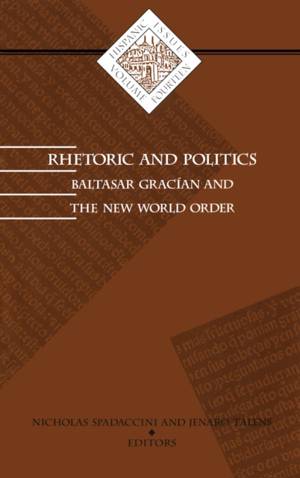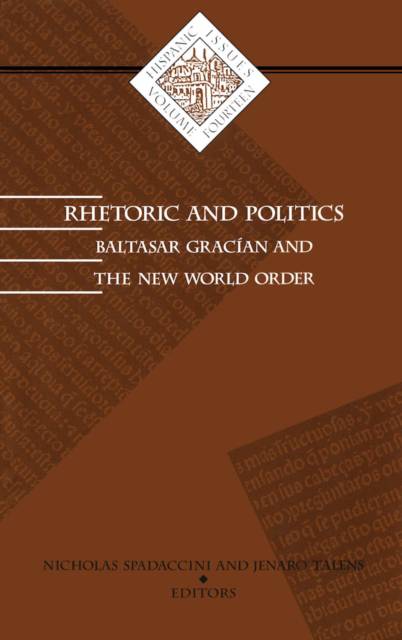
- Retrait gratuit dans votre magasin Club
- 7.000.000 titres dans notre catalogue
- Payer en toute sécurité
- Toujours un magasin près de chez vous
- Retrait gratuit dans votre magasin Club
- 7.000.000 titres dans notre catalogue
- Payer en toute sécurité
- Toujours un magasin près de chez vous
33,95 €
+ 67 points
Description
Considers current events through an examination of this seventeenth-century philosopher.
In recent years there has been a revival of interest in the writings of Baltasar Gracián, a seventeenth-century Spanish Jesuit who explored the political uses of rhetoric. Gracián is best known in the United States for his bestselling collection of aphorisms entitled The Art of Worldly Wisdom, but his pragmatic philosophy has been influential in Europe since the mid-seventeenth century.
The essays in this volume focus on the relevance of Gracián's writings in our own day, when the importance of rhetoric as a discipline necessary to manage public life is indisputable. Ranging in focus and theoretical perspective from Lacanian psychoanalysis to the sociology of everyday life, from considerations of aesthetics and philosophy to examinations of the culture of the baroque, these essays demonstrate that Gracián's work offers insights into the deployment of rhetoric under the "New World Order." Contributors: Luis F. Avilés, U of Massachusetts, Amherst; Anthony J. Cascardi, U of California, Berkeley; David Castillo, U of Minnesota; Jorge Checa, U of California, Santa Barbara; William Egginton, Stanford U; Alban K. Forcione, Princeton U; Edward H. Friedman, Indiana U; Carlos Hernández-Sacristán, U of Valencia, Spain; Isabel C. Livosky, Knox College; Michael Nerlich, Technische Universität, Berlin; Oscar Pereira, U of Nebraska; Malcolm K. Read, SUNY, Stony Brook; Francisco J. Sánchez, U of Iowa.Spécifications
Parties prenantes
- Auteur(s) :
- Editeur:
Contenu
- Nombre de pages :
- 432
- Langue:
- Anglais
- Collection :
- Tome:
- n° 14
Caractéristiques
- EAN:
- 9780816629114
- Date de parution :
- 15-07-97
- Format:
- Livre broché
- Format numérique:
- Trade paperback (VS)
- Dimensions :
- 138 mm x 216 mm
- Poids :
- 453 g







